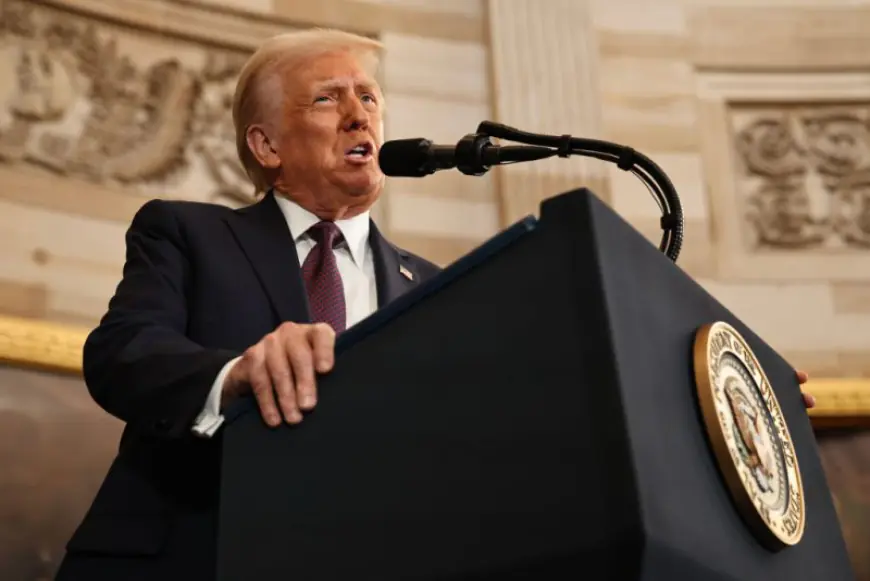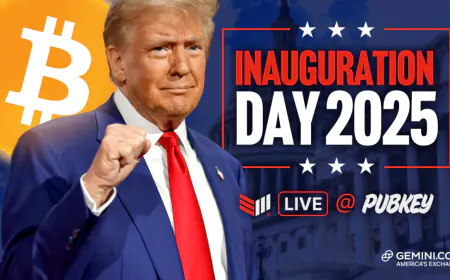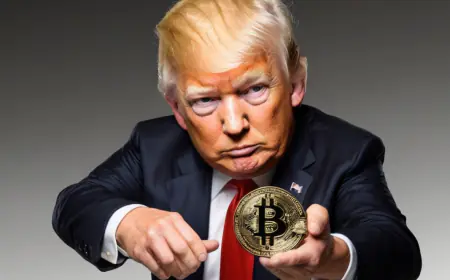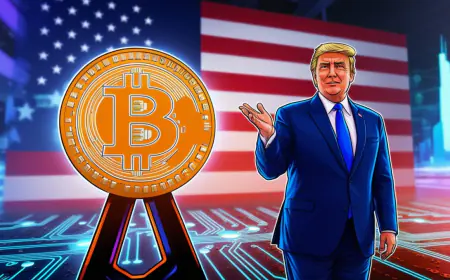What executive orders did Trump sign on day 1 of presidency?
President Donald Trump put pen to paper Monday, signing an estimated 200 executive orders relating to ending diversity, equity and inclusion programs within the federal government, strictly defining two sexes and enforcing heightened border security.

(NewsNation) — President Donald Trump is putting pen to paper Monday, signing an estimated 200 executive orders relating to ending diversity, equity and inclusion programs within the federal government, strictly defining two sexes and enforcing heightened border security.
Trump signed a few nominations and executive orders from Capitol Hill following his inauguration and then more in front of a crowd of his supporters at Capital One Arena. The first order he signed at the arena revoked 78 executive orders signed by former President Joe Biden.
An executive order is a signed statement about how the president wants the federal government to be managed. They can come in the form of instructions to federal agencies or requests for reports.
The president is expected to make good on several campaign promises on his first day in office, but many of his executive orders will likely come up against legal opposition in the coming days.
Trump is expected to sign these executive orders on his first day in office.
Border-related executive orders
Declare a national emergency at the southern border
This order would help the secretary of defense quickly and seamlessly deploy members of armed forces to the border and free up more federal resources.
End catch and release of migrants
Border czar Tim Homan said the Trump administration would be ending the federal “catch and release” program, which allows immigrants who entered the country illegally to remain in the country as long as they are in the process for asylum.
“Stay in your homeland,” Homan told NewsNation last month. “Be safe. Crossing into this country illegally is very dangerous.”
Reinstate the ‘Remain in Mexico’ policy
During his first term, Trump implemented the “Remain in Mexico” policy, also called “Migration Protection Protocols,” which required asylum-seekers to stay in Mexico until their claims were processed. Democratic President Joe Biden’s administration ended the policy in 2022.
Under the order, this policy would be reinstated.
Resume border wall construction
Trump began construction of the southern border wall during his first administration in an effort to prevent illegal crossings. Under the order, work would resume.
Designate cartels as global terrorists
After being elected, Trump revived a campaign vow to designate Mexico’s drug cartels as terrorist groups.
“I will immediately designate the cartels as foreign terrorist organizations,” Trump said.
While in office in 2019, Trump dropped the plan at the request of Mexico’s then-President Andres Manuel Lopez Obrador, who said he wanted U.S. cooperation in fighting drug gangs.
Suspend refugee resettlement for 4 months
Trump, who put tight limits on refugees in his first term, has vowed to “suspend refugee resettlement” for four months as part of a broader effort to “immediately end the migrant invasion of America.”
Attempt to end birthright citizenship
The president said he would end birthright citizenship, the right of children born in the U.S. to claim citizenship regardless of their parents’ immigration status. The 14th Amendment guarantees American citizenship to anyone born in the U.S.
Only constitutional amendments, not executive orders or legislation, can change the Constitution. Trump said he intends to issue an executive order to end the practice, though executive orders cannot overturn constitutional amendments.
Direct the military to prioritize borders
White House officials said the order would “clarify the military’s role in protecting the territorial integrity of the United States” by sending military personnel to the border, pushing the Department of Defense to erect barriers and green-lighting the use of drones and other surveillance measures.
Order enhanced border vetting and screening
Under this order, the president is expected to tighten up the vetting and screening of migrants entering the country.
Diversity and inclusion
Define gender as two sexes
Trump officials said the order will direct federal agencies to enforce laws in order to protect men and women as distinct sexes and use sex, not gender, in federal policies and documents.
The Trump administration will maintain there are two sexes, "male" and "female," and that "they are grounded in incontrovertible reality," one official said. The official added the federal government will use the sex of a person at birth to determine how they are classified.
Under the order, government-issued identity documents, including passports and visas, will reflect a holder's sex. The order is expected to state that the federal government will no longer promote gender ideology, according to officials.
End federal DEI programs
A Trump official said an executive order will end "radical wasteful DEI programs and preferences" in the federal government in order to "create equal treatment."
DEI refers to diversity, equity and inclusion programs.
This order ends funding for DEI funding in the government and will direct the Office of Management and Budget and the Office of Personnel Management to end "illegal mandates, preferences."
Economy and environment
Energy emergency
Trump said he would declare a “national energy emergency” to allow for more drilling and energy production. The order ends leasing to wind farms among other measures.
He said he will make America “a manufacturing nation once again” by ordering mass oil drilling, which he plans to export “all over the world.”
Withdrawing from Paris climate treaty
Another executive order signed by Trump immediately withdraws the U.S. from the Paris agreement, an international treaty on climate change. The pact is aimed at limiting long-term global warming to 2.7 degrees Fahrenheit (1.5 degrees Celsius) above pre-industrial levels or, failing that, keeping temperatures at least well below 3.6 degrees Fahrenheit (2 degrees Celsius) above pre-industrial levels.
The 2015 treaty is voluntary and allows nations to provide targets to cut their own emissions of greenhouse gases from the burning of coal, oil and natural gas.
Electric vehicles
The president said he would end the "electric vehicle mandate," a phrase he uses to refer to a rule by the Environmental Protection Agency, USA Today reports. The rule required auto manufacturers to cut vehicle emissions by 2027.
Inflation and trade
Trump signed a memorandum directing every department and agency to address the cost of living crisis.
But he appears to be holding off at the moment on his threat to issue tariffs on China, Mexico, Canada and other countries. He also appears to be holding off on higher taxes on imports, with an incoming official pointing reporters to a Wall Street Journal story saying he will only sign a memorandum telling federal agencies to study trade issues.
Renaming the Gulf of Mexico, Denali
Trump will issue orders to change the names of the Gulf of Mexico to the "Gulf of America" and Denali to "Mount McKinley".
In 2015, the Department of the Interior changed the name of the Alaskan peak to “Denali” from Mt. McKinley. That was the name traditionally used by the Koyukon people and is based on the Koyukan word for “tall.”
Armed Forces
Reinstating expelled service members
Trump said he would sign an order reinstating service members who were “unjustly expelled from our military for objecting to the COVID vaccine mandate with full back pay.”
He also said he would sign an order to “stop our warriors from being subjected to radical political theories and social experiments while on duty.” It is unclear what Trump is specifically referring to.
Department of Government Efficiency
Trump planned to sign an executive order establishing the Department of Government Efficiency (DOGE), which he says will eliminate government overspending. The new agency was going to be co-led by tech billionaire Elon Musk and former presidential candidate Vivek Ramaswamy, but Ramaswamy said Monday he would no longer take part. The Associated Press reports Ramaswamy has instead signaled he plans to run for governor of Ohio.
The department was hit with three lawsuits just moments after Trump was sworn in as president.
Flags on Inauguration Day
One of Trump's first acts as president was signing an executive order directing U.S. flags to fly at full staff on every future Inauguration Day.
Flags were supposed to be at half-staff on Monday to honor the death of former President Jimmy Carter. Flags typically remain at half-staff for 30 days following a president's death, but Speaker Mike Johnson (R-La.) ordered an exception for Trump's inauguration. Flags were set to return to half-staff on Tuesday.
TikTok ban delay
Trump said early Sunday that he would issue an executive order to delay the ban on TikTok that went into effect one day before his inauguration. He said he would “extend the period of time before the law’s prohibitions take effect, so that we can make a deal to protect our national security.”
Jan. 6 pardons
Trump promised to pardon those convicted in the Jan. 6, 2021, attack on the U.S. Capitol. He said in front of supporters at the Capital One Arena that he would sign the order later Monday evening.
“Tonight I’m going to be signing on the J6 hostages, pardons, to get them out,” Trump said, using a shorthand for people charged with crimes for their alleged actions on Jan. 6, 2021. “And as soon as I leave I’m going to the Oval Office and we’ll be signing pardons for a lot of people. A lot of people.”
Hiring and remote work
Trump signed several executive orders Monday evening related to federal and government workers. Two orders halted government regulations and hiring until the Trump administration takes full control of the government. The military and other categories would be excepted from the hiring freeze, the order said, but details were not immediately given to the public.
A third order requires federal workers to return to full-time in-office work.
Free speech
The president said he would sign an order “to immediately stop all government censorship and bring back free speech to America." He repeated the promise in front of supporters at the Capital One Arena, but didn't offer specific details on the plan.
'Weaponization of government'
Another order signed Monday ends the "weaponization" of the federal government by one administration against a prior administration.
The Associated Press contributed to this report.
What's Your Reaction?









































































































